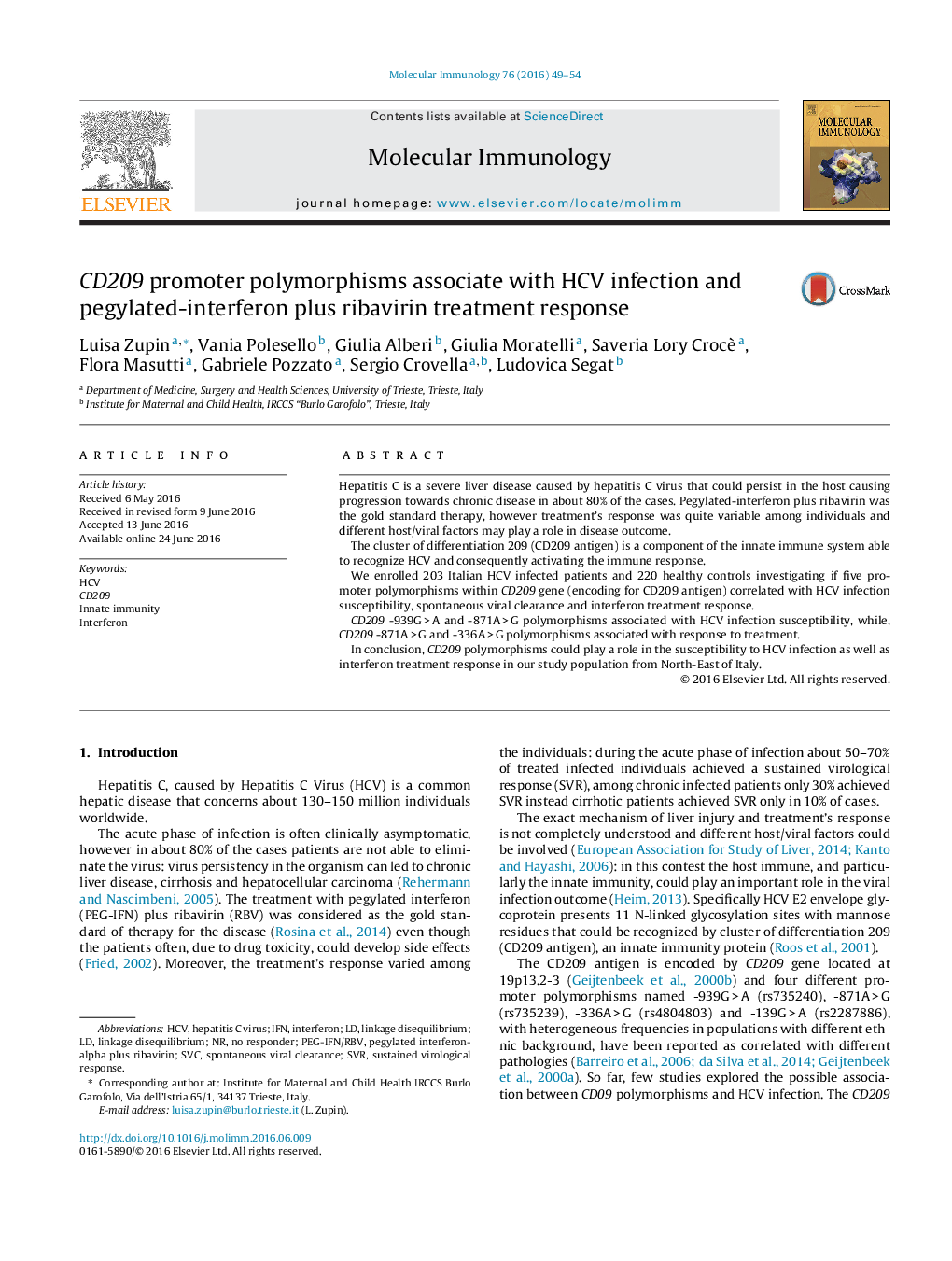| Article ID | Journal | Published Year | Pages | File Type |
|---|---|---|---|---|
| 5916291 | Molecular Immunology | 2016 | 6 Pages |
â¢The cluster of differentiation 209 is able to recognize HCV and activate immune response.â¢Five promoter polymorphisms in CD209 gene were analysed among Italian HCV patients and healthy controls.â¢CD209 -939G > A and -871A > G polymorphisms were associated with HCV infection susceptibility.â¢CD209 -871A > G and -336A > G polymorphisms were associated with treatment response.
Hepatitis C is a severe liver disease caused by hepatitis C virus that could persist in the host causing progression towards chronic disease in about 80% of the cases. Pegylated-interferon plus ribavirin was the gold standard therapy, however treatment's response was quite variable among individuals and different host/viral factors may play a role in disease outcome.The cluster of differentiation 209 (CD209 antigen) is a component of the innate immune system able to recognize HCV and consequently activating the immune response.We enrolled 203 Italian HCV infected patients and 220 healthy controls investigating if five promoter polymorphisms within CD209 gene (encoding for CD209 antigen) correlated with HCV infection susceptibility, spontaneous viral clearance and interferon treatment response.CD209 -939GÂ >Â A and -871AÂ >Â G polymorphisms associated with HCV infection susceptibility, while, CD209 -871AÂ >Â G and -336AÂ >Â G polymorphisms associated with response to treatment.In conclusion, CD209 polymorphisms could play a role in the susceptibility to HCV infection as well as interferon treatment response in our study population from North-East of Italy.
